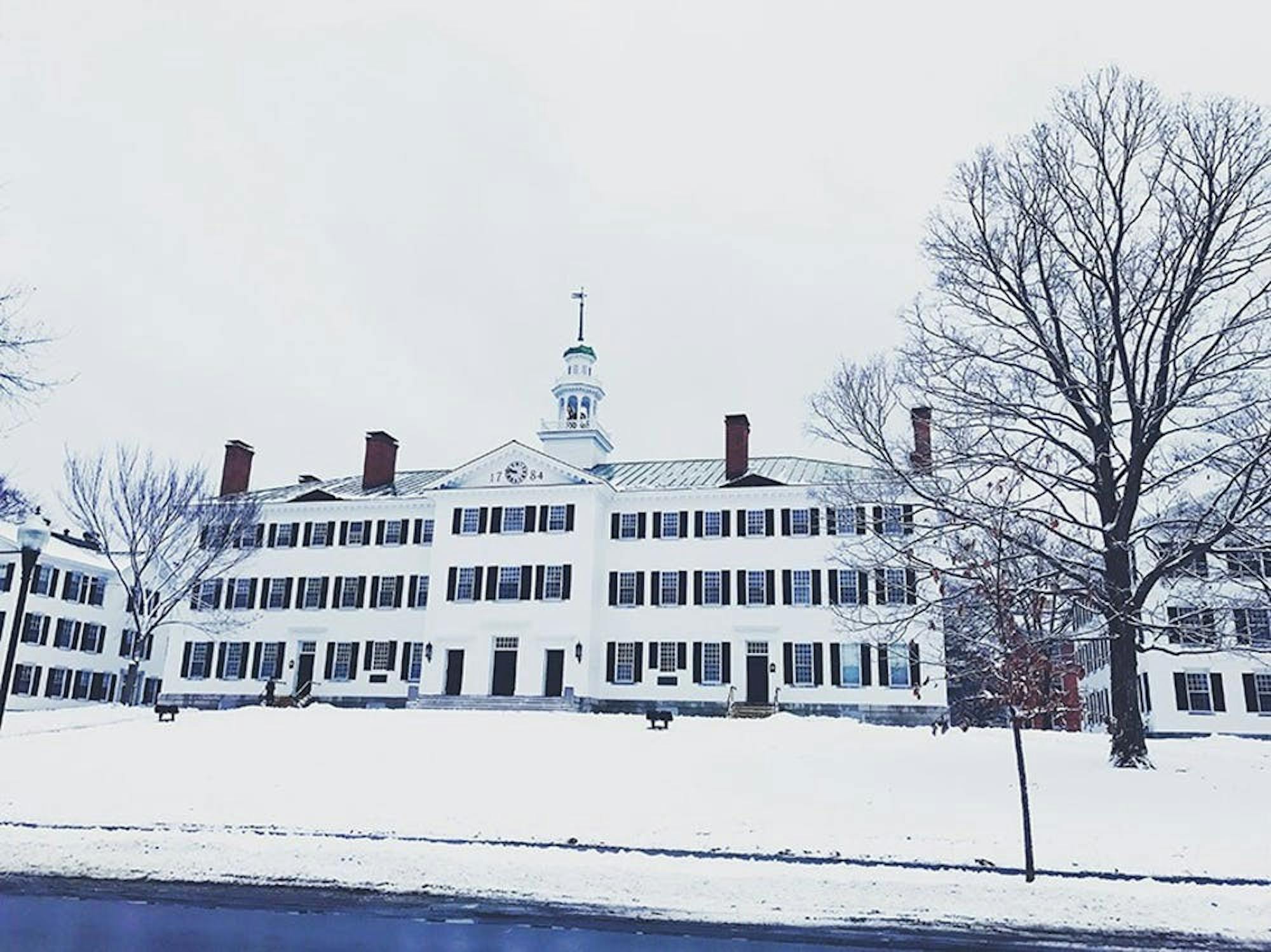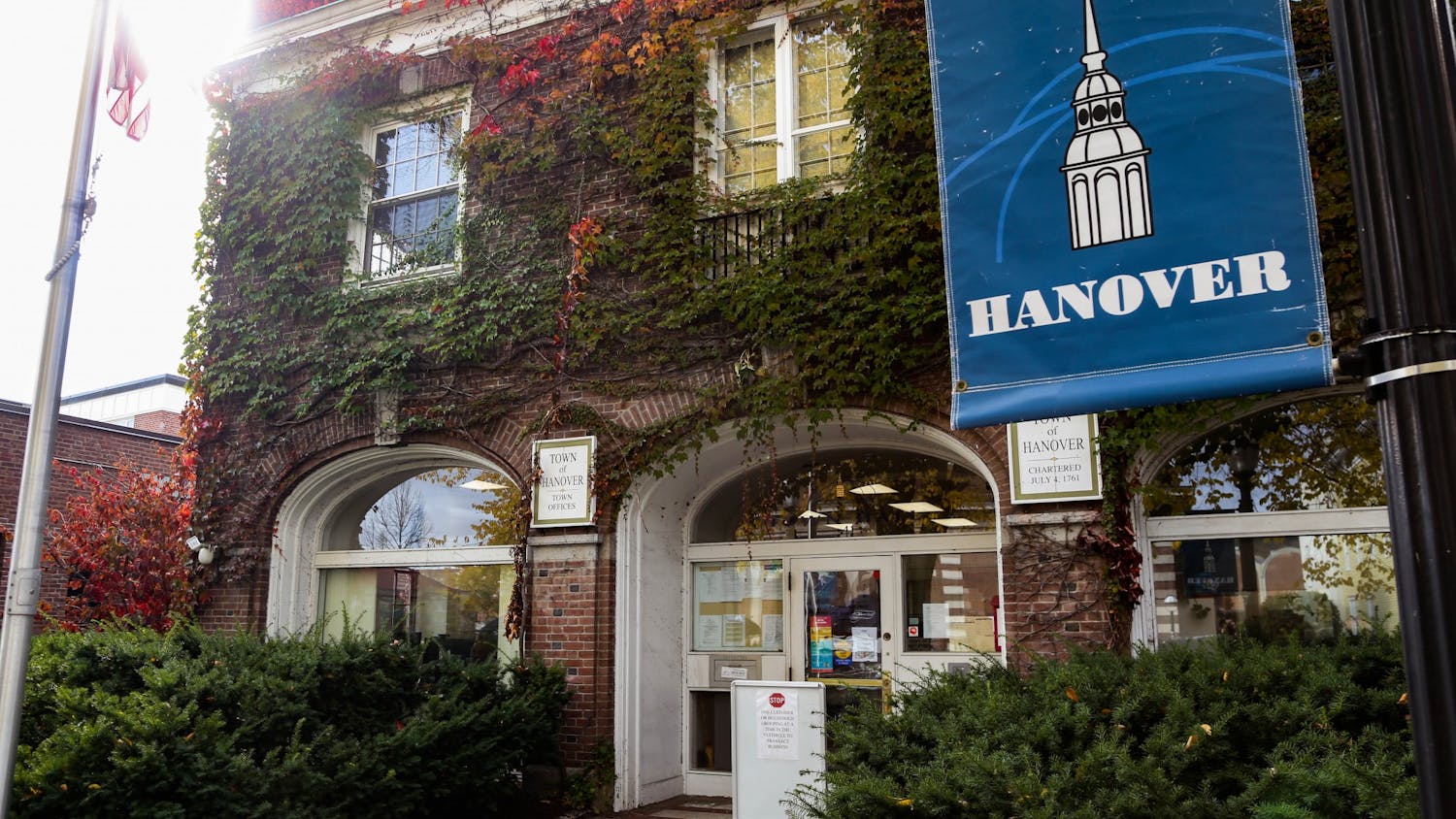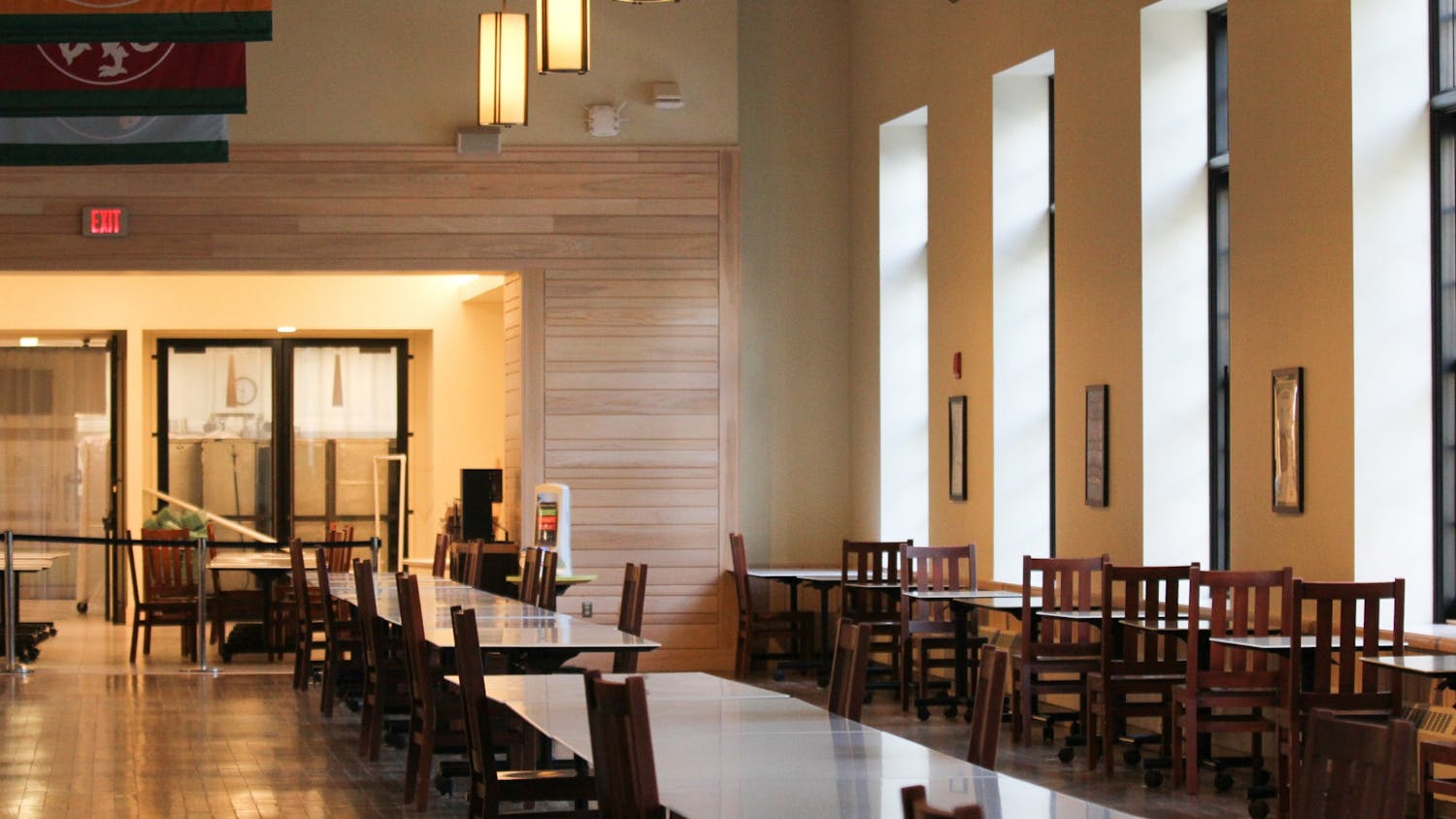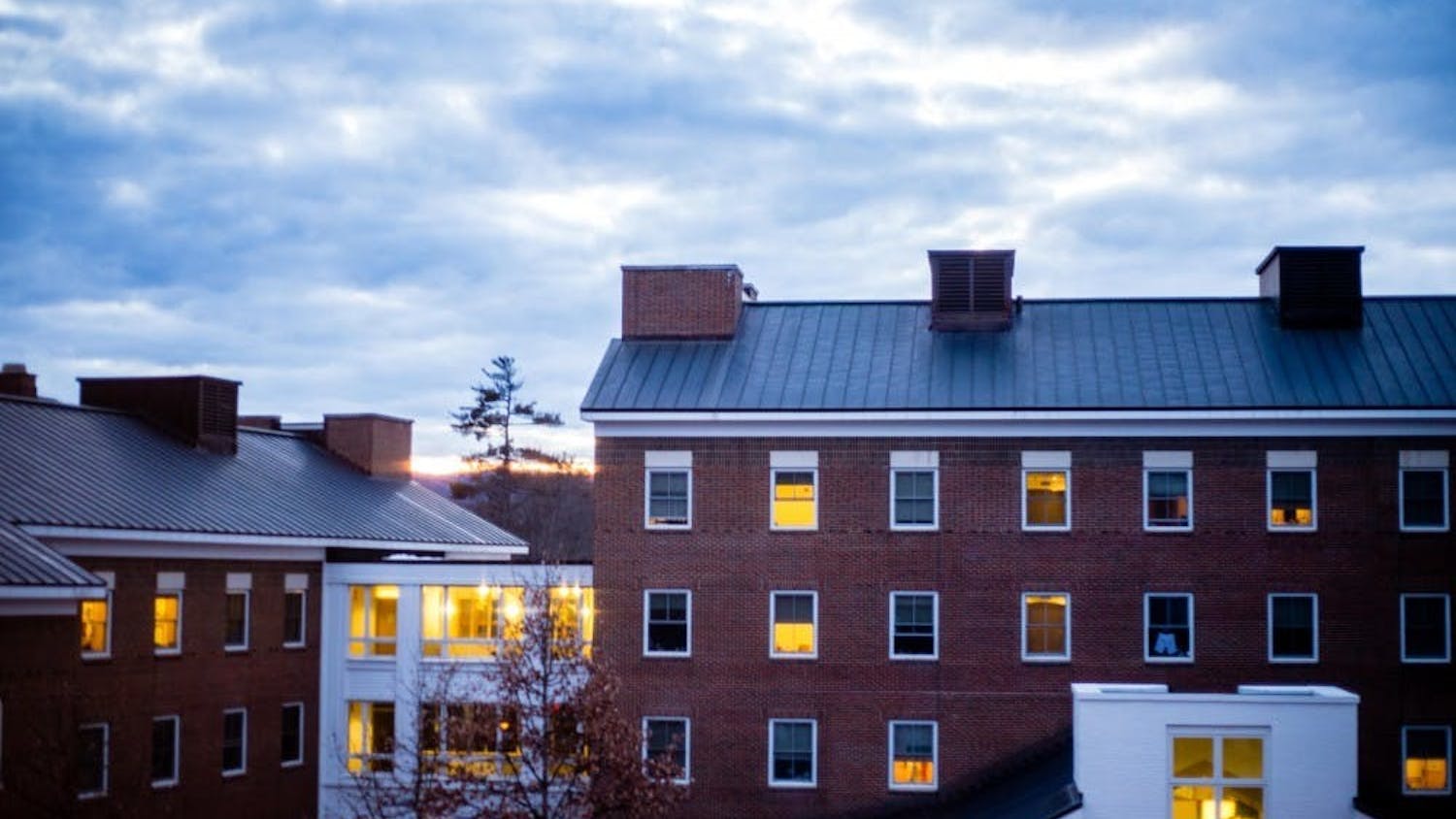Students returning to campus this winter will face new COVID-19 precautions from the College. In addition to the initial two-week quarantine and staggered move-ins seen during the fall term, next term will bring a delayed start date and increased regular testing.
Winter term’s start date was pushed from Jan. 4 to Jan. 7 due to the lengthened move-in process for students living on and off campus. In addition to requiring increased testing, the College is also grappling with how to make necessary changes to dining seating adjustments and outdoor activities in order to accommodate the weather.
According to COVID-19 task force co-chair Lisa Adams, administrators decided on the later start date after several discussions between members of the COVID-19 task force, the Office of Student Affairs, the Office of the Registrar and representatives of Dartmouth’s graduate schools.
Adams explained that pushing the winter start date back was necessary to allow for a more staggered move-in process, similar to the system in place in the fall.
Staggering move-in dates allows for “a measured, steady flow of people” moving in and “accommodate[s] a safe testing environment,” Adams said.
Graduate students are expected to begin COVID-19 testing on Jan. 3, and undergraduate students are expected to arrive on Jan. 5 and 6, and possibly Jan. 4, to start classes on Jan. 7, Adams said. Despite the multiple dates, the College has made it clear that students should not purchase any flight tickets until their arrival date has been confirmed.
Seysha Mehta ’21, who has not been on campus since last fall, said that she understands the administration’s decision to delay the start of winter term.
“I’m really not upset at all,” Mehta said. “I feel like the College is doing what they can for us, while also trying to give us as much of a normalized term as possible.”
Although Adams said that she is unsure as to exactly how many students will be on campus this winter, she said there will be a “similar number to the fall.”
Adams confirmed that the move-in procedure for testing in the winter should be “similar” to the fall term. Students will be expected to partake in pre-arrival testing with the same COVID-19 testing company, Vault Health. Upon arrival on campus, students need to be dropped off at the testing site by the Dartmouth Coach or their other mode of transportation. Then, they will be allowed to move into their dorms or off-campus housing.
Adams said that daily surveillance and COVID-19 tracking will be done through the Temperature and Self-Assessment survey, like fall term, unless New Hampshire state guidelines change.
Flu shots will not be mandatory for employees and students, Adams clarified, but the College “expects” students and employees to get flu shots because they “know that that’s going to be in everybody’s interest,” Adams said.
After the 14-day quarantine period, the College will permit socially distanced group gatherings of nine students or less. Exceptions will be made for College-approved events of 25 people or less.
Testing will increase during the winter in an effort to “support community health during winter cold and flu season,” Provost Joe Helble said in the Oct. 28 “Community Conversations” live stream. Students and employees will have to participate in COVID-19 testing twice a week, compared to once a week fall term. Testing will continue to be done at Leverone Field House in the winter, Adams said, because “it has been assessed and determined to be one of the best places in terms of ventilation.”
Another area that will see slight changes from the fall is dining. According to Dartmouth Dining director Jon Plodzik, one main concern for the winter is the lack of available seats for students. As of Oct. 30, Plodzik said that only 260 seats would be available across all of Dartmouth’s dining halls in the winter, as the tents that were available during the fall term will not be an option for on-campus students during the winter due to the cold.
Plodzik said that Dartmouth Dining is working with the task force in “identifying and properly setting up additional seating around campus” to add more options for dining in “without having to walk across the frozen Green.”
Beginning on Jan. 7 or when students receive their first negative test results, students will be able to physically pick up their meals and are expected to eat by themselves in their rooms for the duration of the required two-week quarantine period. On Jan. 21, the dining centers open this fall — including Class of 1953 Commons, Novack Cafe, Collis Cafe, Collis Market and Ramekin — will reopen for winter.
Plodzik said that, in order to combat fall term issues with meals during quarantine, students will “be picking what they’d like to have delivered to [their] residence hall from a menu,” rather than the fall term system, when students were placed on a “track” such as vegan or gluten-free.
Adams said that although she believes pre-arrival testing may show higher numbers than the fall due to “rising [COVID-19] rates across the country,” she thinks that winter term “is going to look very similar” to fall. Student Affairs is still working out the exact details of winter term operations, she said.
She added that colder weather will make it more challenging for students to get outside, noting that the College is looking into options to allow students to continue to get outdoors.
“The days are going to be shorter,” she said. “We want to make sure that people are getting out and staying healthy — especially staying mentally healthy because the winter days are going to be short, and nights are going to be long.”
Correction appended (Nov. 9, 2020): A previous version of the article incorrectly stated that after the 14-day quarantine period, the College will permit socially distanced group gatherings of 10 students or less. The article has been updated to reflect that the College will permit gatherings of nine students or less, maintaining its fall policy.





